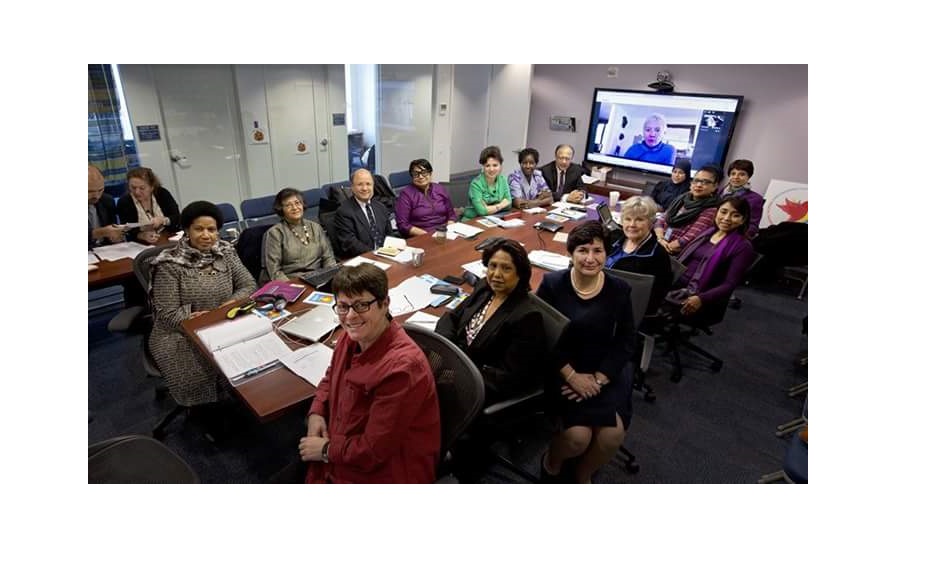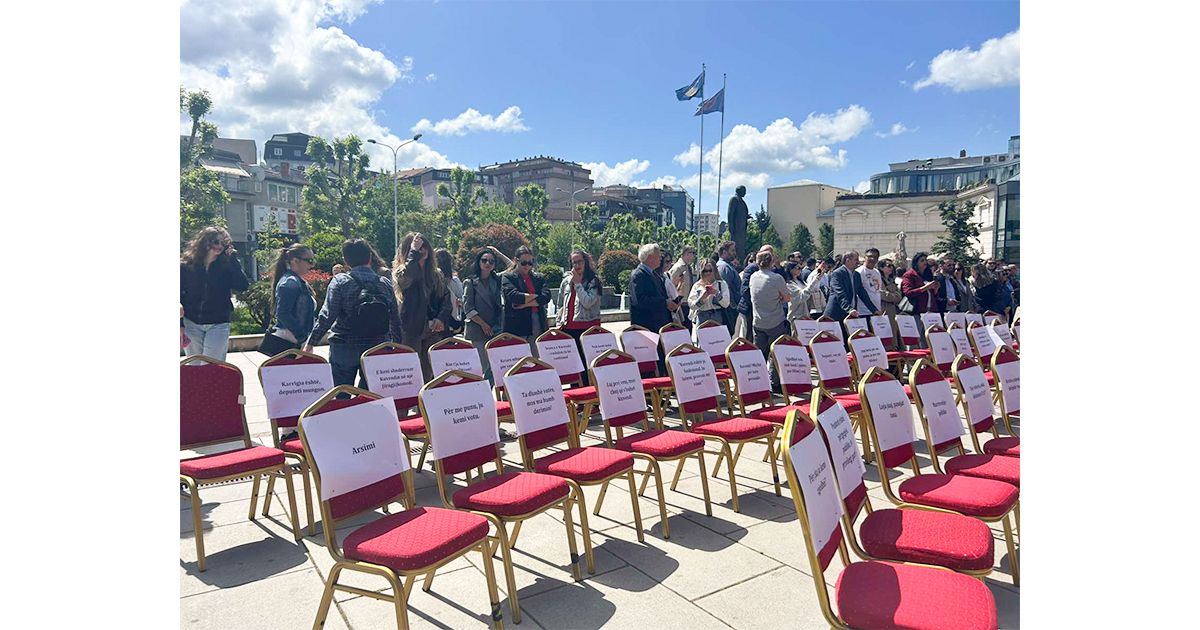As a member of the High-level Advisory Group for the Study on the implementation of United Nations Security Council Resolution (UNSCR) 1325 on Women, Peace and Security (2000), the Kosovo Women’s Network (KWN) Executive Director Igballe Rogova made several contributions to this important study, which has informed UNSCR 2242 (2015).
Requested by the Secretary General of the UN and led by Radhika Coomaraswamy, the Global Study was commissioned to mark the 15th Anniversary of UNSCR 1325. UN Women served as the Secretariat for the Study and a High-Level Advisory Group involving representatives from around the world supported the study and contributed to its content, drawing from their extensive experiences. In close consultation with women’s rights activists and other actors throughout the region, Rogova represented South East Europe in the Advisory Group and study. The widespread consultations for the study involved input from more than 60 Member States; international organizations; 47 civil society organizations, academics and research institutes; and a survey of 317 civil society organizations in 71 countries.
In addition to supporting the organization of regional consultations, Rogova collaborated with other members of the Advisory Board to advocate for address of several key points in the recently published final report: Preventing Conflict, Transforming Justice, Securing the Peace: A Global Study on the Implementation of United Nations Security Council resolution 1325 (2015).
Among the issues emphasized by Rogova and other Advisory Group members was the need for attention to militarism and the impact that funding weapons and wars ultimately has on women. KWN often has emphasized that funding weapons and military spending is the “elephant in the room”: a gigantic factor undermining women’s security, but which few people have the political will or courage to talk about publicly.
In the end, the report strongly reflected the importance of addressing militarism, concluding: “Women spoke with one voice from every continent to convey a key message to the Security Council: the United Nations must take the lead in stopping the process of militarization and militarism that began in 2001 in an ever-increasing cycle of conflict. The normalization of violence at the local, national and international levels must cease.”
Rogova, among other Advisory Group members also emphasized that the study must highlight the importance of supporting women’s rights groups who play crucial roles in protecting women affected by violence, furthering security for women, treating women who have suffered violent crimes, raising awareness about gender-based violence within diverse communities, advocating for justice for persons affected by war. The Study thus concludes, “Supporting women peacebuilders and respecting their autonomy is one important way to counter extremism,” and “the persistent failure to adequately ï¬nance the women, peace and security agenda must be addressed.”
South East Europe and Kosovo specifically is represented in the final report with references to Women in Black, the Regional Women’s Lobby for Peace, Security and Justice in South East Europe, steps taken towards addressing sexual violence and Kosovo Police, among others. KWN’s report 1325 Facts & Fablesalso is cited among the sources informing the report.
As a result of this repot, on 13 Oct., the Security Council unanimously adopted resolution 2242 (2015). According to a Statement by UN Women, this new Resolution “places the women, peace and security agenda as a central component of our efforts to address the challenges of the current global context, including rising violent extremism, climate change, and unprecedented numbers of displaced people. The resolution makes clear the substantive links between women’s participation and sustainable peace and security; and provides an extraordinary new tool for all actors to further implement this agenda and the objectives of the Security Council.” This is the eighth Security Council Resolution focusing on women, peace and security.



